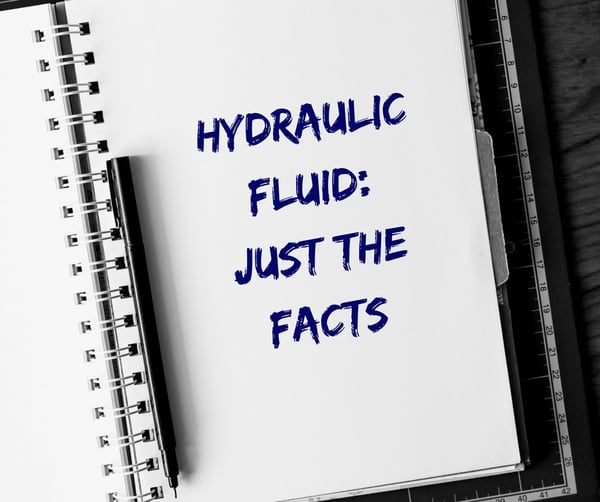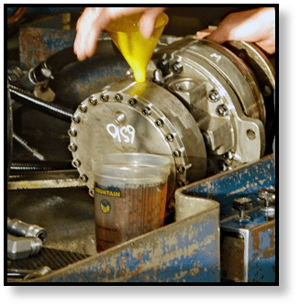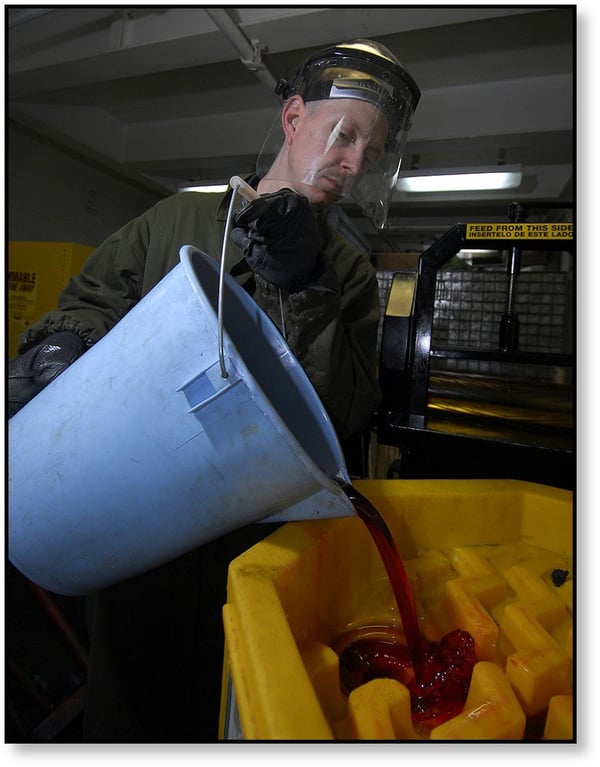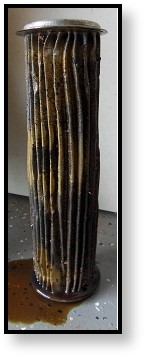Hydraulic fluid is the lifeblood of a hydraulic system, whether that hydraulic system is on a full-size excavator or a small skid steer loader. In this Shop Talk Blog post, we are going to discuss all things hydraulic -- hydraulic fluid, hydraulic contamination, hydraulic flushing, and hydraulic injection.

Why not take a look at these other Shop Talk Blog posts?
- Common Hydraulic Fluid Issues
- Hydraulic Fluid Questions for Newbies
- 5 Hydraulic Fluid Questions Answered

What is Hydraulic Fluid
Hydraulic fluid is used to transmit power in a hydraulic system. However, that isn’t the only task hydraulic fluid has to perform. It must also provide lubrication, conduct heat away from critical components, and reduce friction.
Types of Hydraulic Fluid
There are several different types of hydraulic fluid, including petroleum-based, water-based, synthetic, biodegradable, and flame retardant. Most heavy equipment uses petroleum-based or synthetic, while some agricultural machines may use biodegradable.
Hydraulic Contamination
Contamination is the number one cause of failure in hydraulic equipment, and newer equipment is even more sensitive to its effects. There is some contamination that you can’t avoid, such as built-in or generated contamination.
Air and water contamination can seriously impact the cycle time and performance of your equipment. Fortunately, there are ways that you can minimize this type of contamination. If your hydraulic fluid looks milky, it is likely that water has contaminated it. If it seems foamy, then air is the likely culprit.
Another potential type of contamination results when hydraulic fluid begins to degrade or when different types of hydraulic fluid are mixed. Aging hydraulic fluid will break down chemically, and the result is called chemical contamination. When you mix different types of hydraulic fluids, chemical reactions can result if their additives are not compatible.
Chemical contamination is one of the main reasons why you should change out your hydraulic fluid periodically. How often that needs to take place depends on what the manufacturer recommends. Also, keep in mind that changing out the hydraulic fluid is not the same as flushing your hydraulic fluid.

By U.S. Navy photo by Mass Communication Specialist 3rd Class Jon Husman [Public domain], via Wikimedia Commons
Particulate contamination does the most damage that you can see and is responsible for much of the damage that we encounter on final drives and hydraulic motors. One of the primary ways that particulate contamination gets access to your hydraulic system is through leaking seals -- if fluids can leak out, dirt and sand get inside. If you don't address leaks and hydraulic contamination, it can destroy your final drive hydraulic motor.

Hydraulic Filters
One of the main ways to keep contamination under control is through the proper use of hydraulic filters. Quality filters are a wise investment in both the life and performance of your equipment as well as the components that make it up. We recommend checking and changing your filters according to manufacturer instructions. The case drain filter is a significant cause of problems in final drives if you don't replace it when it gets clogged. A clogged case drain filter results in a build-up of pressure on the hydraulic side of your final drive that can burst seals and even blow the cover off your motor.
Flushing Versus Changing Hydraulic Fluid
Early we mentioned flushing versus changing your hydraulic fluid. Flushing your hydraulic fluid is much more involved than just changing out your fluid. There are certain situations when it is recommended, however, such as after a component (such as a final drive or pump) has failed or when a machine or critical component has been rebuilt.
Hydraulic Fluid Injection
One thing to always keep in mind when working around hydraulic fluid is the danger of fluid injection. Pressurized hydraulic fluid can pierce the surface of your skin and result in severe to fatal injury. It often goes ignored until significant damage has been done because it may just feel like a pinprick or a bee stung. Don’t use your hands to look for fluid leaks -- use cardboard or something similar. If you do experience an injection injury, head to the doctor right away. It may not seem like a big deal, but it will be.
Conclusion
It’s not an exaggeration to say that hydraulic fluid is the lifeblood of your hydraulic machines. It needs to be protected from contamination, changed when the manufacturer recommends and flushed when necessary. Filters should be checked and changed if you want to keep your hydraulic fluid healthy. Healthy hydraulic fluid also means robust hydraulic components, including your final drive motors.
Texas Final Drive is your partner in providing new or remanufactured final drive hydraulic motors from a single mini-excavator to a fleet of heavy equipment. Call today so we can find the right final drive or hydraulic component for you, or check out our online store to find your O.E.M. manufacturer brand motor now.


